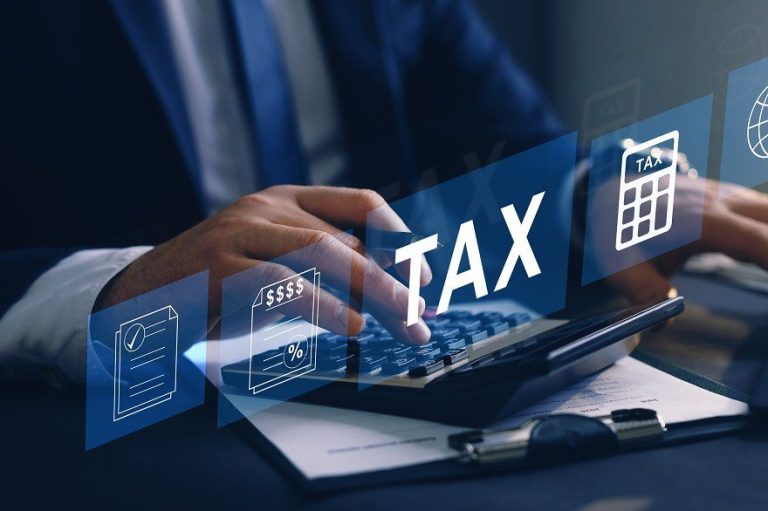This week on Vale’s Finance Compass. We will discuss a financial plan and what it means. When you hear the words “financial plan,” what comes to mind? For some, it is the image of numbers, for others, it feels like a heavyweight, a reminder of things they have not done and money they do not have. But a financial plan, at its core, is none of these things. It is not about deprivation or complexity. It is about freedom. Pure, unfiltered freedom.
Freedom from sleepless nights wondering how you will make it to the next payday. Freedom from the scary feeling that your goals are just out of reach. Freedom to live a life where you are in control, where money becomes a tool.
You see, the beauty of a financial plan is that it works for you, not the other way around. It is a strategy roadmap that gives every naira in your pocket a purpose. Without a plan, money comes and goes like Lagos traffic, chaotic and unpredictable. But with a plan? Suddenly, every naira has direction. That rent payment in June? It is covered because you started saving for it in January. The trip to Ghana you have been dreaming about? It becomes a reality because you created room for it in your budget.
But here is the catch, a financial plan does not just create itself. It demands that you pause and take a hard look at where you are and where you want to go. That requires honesty, honesty about your income, your expenses, and even your financial habits. Are you the kind of person who spends impulsively at every “Owambe” party, or do you prefer to hold on to money, afraid to spend even when you should? Both approaches, while different, can lead to financial stress if not managed.
A strategy for 2025 does not have to be overwhelming. Start with the basics. First, get clear on your income streams. Is your salary enough, or do you need to diversify by taking on a side hustle? Next, tackle your expenses. Break them down into needs, wants, and luxuries. What can you trim? What can you eliminate? What must stay?
Then, set your goals. Not just vague “I want to save more” goals, but specific, measurable ones. For example, “I will save ₦10,000 every month towards my Pamper Me fund by December 2025.” Or, “I will invest 15% of my income in My Vault for the next 12 months.” Goals like these keep you grounded. They take your dreams and make them actionable.
And do not forget to review and adjust. Life is unpredictable; you may lose a job, gain a new one, or face unexpected expenses. That is okay. Your financial plan is not set in stone. It is a document meant to evolve with you.
What you need to remember is this, financial freedom is not about how much money you make, but about how well you manage it. It is about having the resources to make choices not out of fear or necessity but out of desire and intention. And that is the kind of freedom we all deserve, isn’t it?
So, as you step into 2025, think of your financial plan as your personal declaration of independence. It is not about impressing anyone else. It is about you, your peace of mind, your goals, and your life. Freedom, nothing more, nothing less.
NOW TO THE NEWS
High currency in circulation fails to tame cash scarcity
Cash scarcity remains a persistent issue across Nigeria, even as the latest data from the Central Bank of Nigeria (CBN) shows that currency in circulation hit a record high of N4.5 trillion in October 2024.
According to the data, currency in circulation increased by 4.7 percent from N4.3 trillion recorded in September 2024.
Despite this increase, Nigerians continue to face challenges accessing cash as banks ration withdrawals and automated teller machines (ATMs) fail to dispense.
Many customers have reported being unable to withdraw their desired amounts, with some accusing banks of arbitrarily limiting cash disbursements.
The CBN’s data also revealed that currency outside banks reached a historic high of N4.3 trillion in October 2024, reflecting a 6.7 percent increase from the N4.02 trillion recorded in September. Commenting on the implications of this trend, Ijeoma Kalu, a professor of economics at the University of Port Harcourt, told Bloomberg, “Having excess cash outside the banking system would render impotent policy issues on the cash reserve ratio and lending rate.”
Nigeria requires 38% growth to match Tinubu’s $1trn GDP dream
Nigeria will need an average annual growth of 38 percent to realise President Bola Tinubu’s $1 trillion gross domestic product (GDP) target by 2030.
President Tinubu has promised to build a jumbo-sized economy, aiming for a $1 trillion GDP by 2030.
During the 2023 presidential campaign, Tinubu addressed business leaders at the Nigerian Economic Summit (NES) in Abuja, claiming that Nigeria’s GDP could grow to $1 trillion by 2026.
“Distinguished audience, a $1 trillion Nigerian economy is possible by 2026, and a $3 trillion economy is achievable during this decade. We can do it with double-digit, inclusive, sustainable, and competitive growth,” Tinubu stated.
However, the goal posts have shifted. The current target is a $1 trillion economy by 2030—a projection some analysts describe as chasing shadows.
Nigeria’s Dying ATMs Leave a Cash-Shaped Hole Filled by Agents
The agents are handling most of the country’s daily transactions and starving the formal banking system of cash. The Central Bank of Nigeria, looking to increase financial inclusion, encouraged their proliferation. But regulators now fear they are consuming the monetary system, undermining the fight against inflation and pushing the naira further from their control.
“Having excess cash outside the banking system would render impotent policy issues on the cash reserve ratio and lending rate,” said Ijeoma Kalu, professor of economics. That’s why the bank’s current tightening cycle. Nearly half of Nigerian adults didn’t make payments through regulated financial operators in 2023, according to Enhancing Financial Innovation & Access, a development organization that tracks the data. At the same time, Nigeria has too few ATMs—just 14 per 100,000 adults, compared to 31 in Egypt, according to the IMF—which are in any case often empty.
“All that cash that would have come into the system for us to process and re-issue is being held by these POS operators we discovered it and we are working on it,” said Olayemi Solaja, the CBN’s acting director of currency operations. Still, he said regulators were treading gently because “we can’t jeopardize our financial inclusion advocacy.” It’s an unintended consequence of the central bank’s decision to create the agency system in 2016.
CBN imposes N150 million fine on banks for illicit mint naira transactions
The Central Bank of Nigeria (CBN) has taken a firm stance against the illegal flow of freshly minted naira notes to currency hawkers and other unscrupulous agents by imposing a penalty of N150 million per branch on erring Deposit Money Banks (DMBs).
This comes as part of measures to curb the commodification of Naira notes, which the CBN says undermines efficient cash distribution to Nigerians.
In a circular issued on December 13, 2024, and signed by the Acting Director of the Currency Operations Department, Mohammed J. Olayemi, the apex bank expressed dismay at the rising trend of mint Naira notes being sold in cash hawking spots across the country.
The circular referred to an earlier directive dated November 13, 2024, underscoring the CBN’s commitment to addressing this illicit activity.
According to the CBN, the fine will be imposed at the first instance of a violation by any bank branch found culpable of facilitating, aiding, or abetting the flow of mint notes to hawkers.
Subsequent violations will attract even stricter penalties under the provisions of the Banks and Other Financial Institutions Act (BOFIA) 2020.
To ensure compliance, the CBN announced plans to intensify periodic spot checks in banking halls and ATMs, with a focus on reviewing cash disbursement practices.


